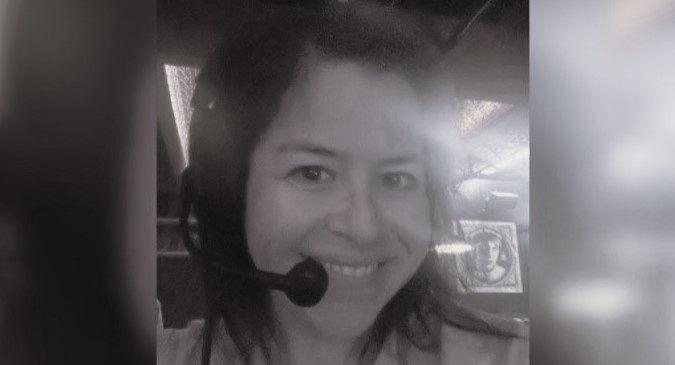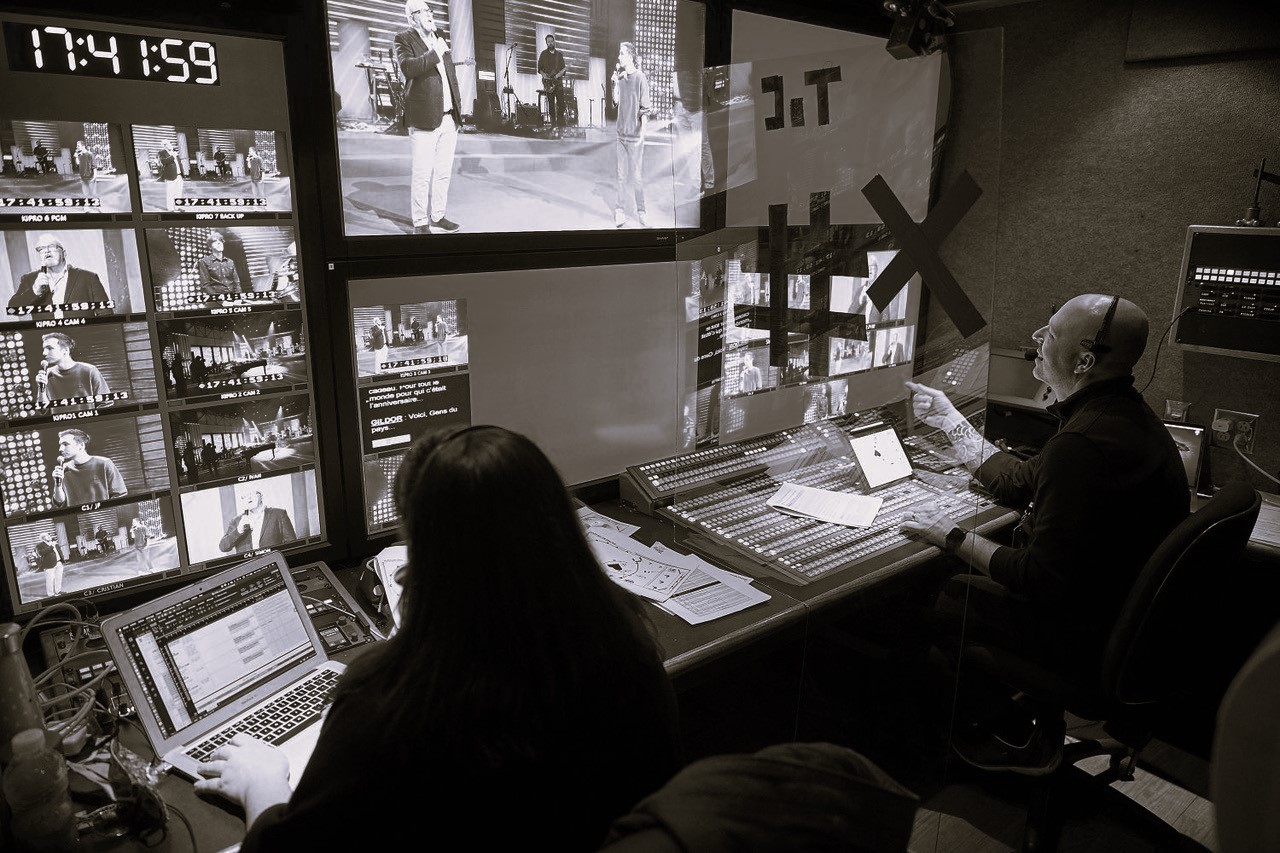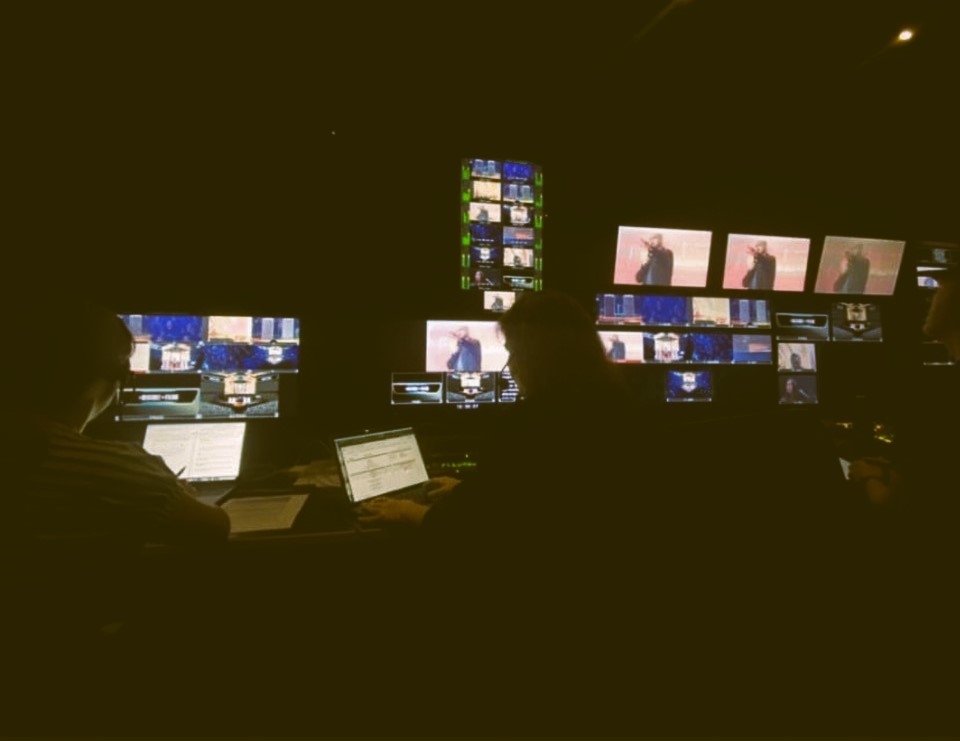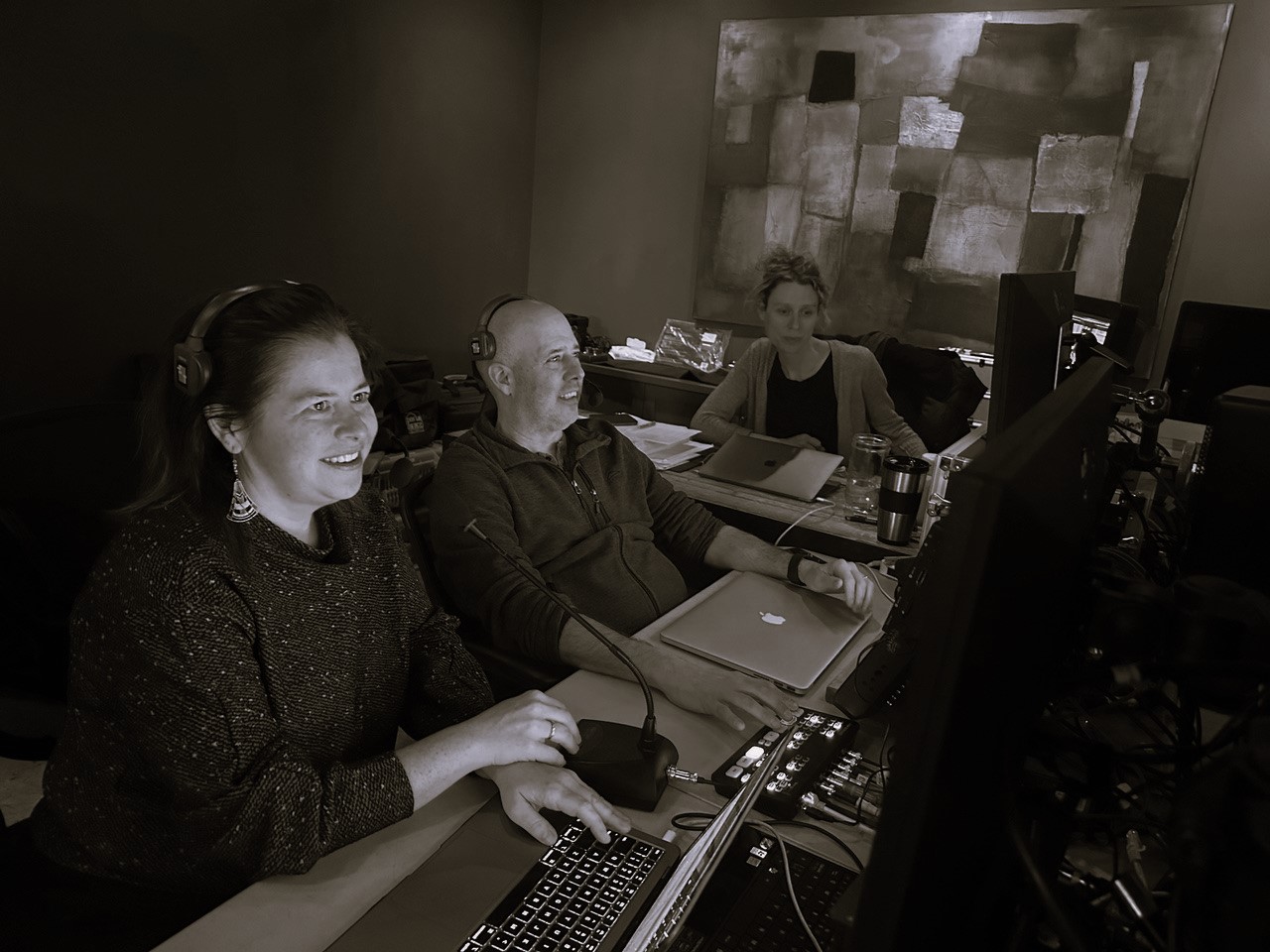Karine Arsenault - Assistant Director (TV)
Publié le November 1, 2023

Translated from French
WHAT IS YOUR JOB? HOW WOULD YOU DESCRIBE YOUR WORK?
My background isn’t typical. I was studying film in CEGEP and during the summer break after my first year, I scoured the directory in the magazine Qui fait quoi?–that was back before the Internet. Like a typical beginner, I sent my résumé to every company I could find, with no idea who they were. JPL Production (now TVA Productions) was offering internships as TV production assistants, but they preferred graduates. So I got my diploma and tried again the following year. I landed an internship on a summer show, Tôt ou tard.
I remember walking into the control booth for the first time and thinking “Wow, I’m at NASA!” It was so impressive! I learned on the job, watching other people do it. They showed me the basics but they never asked me to sit in the assistant director’s chair. Then Mélanie Duranceau–who has since become my best friend–joined the show, and gave me a real opportunity to learn. The show was live, 5 nights a week, so if I made a mistake one night, I could make up for it the next. I learned everything by doing it. At the end of the summer, I was offered a contract to stay on and finish out the season. I was on my own, like a real assistant director.
The big breaks in my career all came from meeting people. I worked on a show with Jean Lamoureux, which went well, and he asked me to do the Star Académie galas–the very first ones! Looking back on it now, it was crazy to give that job to a person with 2 years’ experience! I remember showing up on the set, everyone knew each other, and I was the new kid on the block. Someone asked me “Whose daughter are you?”
I didn’t know anyone in TV but I got the bug at a young age. I was fascinated by the behind-the-scenes magic, and I’ve always loved the arts and shows. In high school, I did a lot of theatre, and before long I was helping out with the directing or the technical side. So this career choice was a no-brainer for me. I was hungry to learn, I was like a sponge. I loved working with people and I think I had some talent.
There are many different types of assistant directors. Light video, for example, is a different world. I’m not cut out for it. Being out in the field isn’t really my thing; I’m much more at home in the control booth. It’s my bubble, my comfort zone. I like to say that we ADs always have one foot in the future, because we’re constantly announcing what’s coming next even while we’re keeping track of what’s happening now. That has to become second nature, and you have to find solutions fast when problems arise. It’s a job where you have to keep your cool. Dealing with people is huge, since you’re information central. You have to get to know people, know how to talk to them, and develop good leadership skills to keep things running smoothly.

WHAT PART OF THE JOB DO YOU LIKE THE BEST?
Being on the set or in the theatre! I love rehearsals because you get a glimpse of the final product without the stress of being on air, so you can use the opportunity to fine-tune it. Watching the show take shape with everyone on the set after you’ve laid the groundwork on your own is a great feeling.

WHAT WAS YOUR FAVOURITE PROJECT?
I’d say each time I’ve done the Saint-Jean Baptiste show in Quebec City has been special. I feel lucky to have been the assistant director for nine editions of the show, and for the past two years I’ve also been doing the artistic direction and content production. I sort of see it as my baby: we start from scratch, develop it, and go live.
More generally, live shows where you are part of something big are really exciting. I did Céline Dion’s outdoor concert on the Plains of Abraham in Quebec City in 2008. The crowds were massive, everything was extravagant, rehearsing with Céline’s crew was a memorable experience. I also worked on taping her shows in Las Vegas, Boston, Quebec City and Montreal for DVD. Working with top names in every department is something that has stayed with me.
The directors I’ve worked with like to go over the top and have limitless ideas. That has led to some extraordinary situations! And when the sky’s the limit you have to keep both feet firmly on the ground—and remember that you aren’t saving lives!
IS THERE AN ANECDOTE ABOUT YOUR WORK THAT COMES TO MIND?
I’ll never forget the 2015 Saint-Jean Baptiste show in Quebec City. We only had one day for general rehearsal and camera rehearsal before going live that night. It was a huge show with 25 numbers. It poured rain ALL day, so we couldn’t rehearse and didn’t even know whether the show would go on. We ended up in a trailer with the cameramen, listening to rehearsal mp3s, counting down the songs as if they were being performed. But we were sitting in a circle in a trailer, it was surreal! The show finally went ahead in its entirety and was technically flawless—our cues came off without a hitch! I remember the stress, but also what a wonderful team effort it was.

HOW DO YOU SEE THE FUTURE OF THE PROFESSION?
There’s a misconception that assistant directors are “directors’ secretaries.” That’s just not true: we have different, complementary roles. While you often see a male director with a female assistant director, there are more and more women directing now, and that’s a good thing! Assistant director is still a predominantly female profession.
I also think it’s important to demystify the “glam factor.” An internship that is more “prestigious” on paper won’t necessarily give students a good opportunity to practice, because everything happens fast and every second counts! I often tell people that the best way to learn, to really practice and make mistakes, is to work on the news or a daily show.
I’m an optimist. I’ve seen shrinking budgets, and I do think we’re going to hit a wall at some point. But I also believe TV is here to stay. It may not always be exactly what we’ve known in the past, and we may have to rethink it, go hybrid, work with digital platforms, but I don’t think it’s over for us. We’re fully capable of adapting and reinventing ourselves.
WHAT WOULD YOU SAY IS THE QUEBEC AUDIOVISUAL INDUSTRY’S GREATEST STRENGTH?
We can do wonders with limited resources. Our crews are creative and imaginative. Our close-knit community makes our daily work rewarding. And we’re an industry of people who love what we do. I don’t know anyone who’s just coasting.